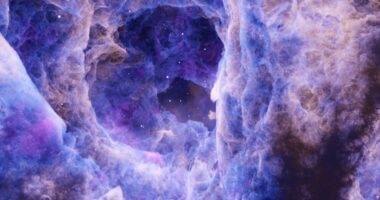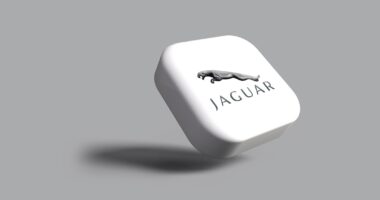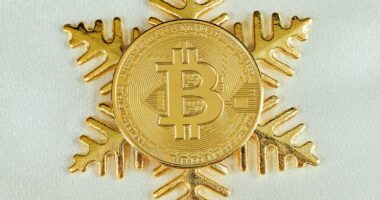Decentralized Autonomous Organizations (DAOs) are a revolutionary concept in the world of blockchain technology, and Ethereum has been at the forefront of their development and implementation. DAOs are essentially organizations that operate without a central authority, using smart contracts and blockchain technology to automate decision-making processes and governance. Ethereum, as a decentralized platform for building and deploying smart contracts, provides the perfect infrastructure for DAOs to thrive.
DAOs on Ethereum are designed to be transparent, secure, and autonomous, allowing for a wide range of applications across various industries. From decentralized finance (DeFi) to governance and voting systems, DAOs have the potential to disrupt traditional organizational structures and create new models for collaboration and decision-making. As Ethereum continues to evolve and improve its scalability and security, the potential for DAOs to become even more prevalent and impactful is significant.
How DAOs Operate on the Ethereum Network
DAOs on the Ethereum network operate through a combination of smart contracts, tokenomics, and decentralized governance mechanisms. Smart contracts are self-executing contracts with the terms of the agreement directly written into code. These contracts are deployed on the Ethereum blockchain and can be programmed to automate various functions, such as fund management, voting processes, and decision-making protocols.
Tokenomics play a crucial role in DAOs, as they enable members to have a stake in the organization and participate in governance. Tokens can represent voting rights, ownership stakes, or other forms of value within the DAO. Members can acquire tokens through various means, such as contributing to the organization, purchasing them on decentralized exchanges, or earning them through participation in the DAO’s activities.
Decentralized governance mechanisms, such as voting protocols and proposal systems, allow members of the DAO to collectively make decisions and steer the direction of the organization. This can be achieved through token-based voting, where each token holder has a proportional say in the decision-making process. Additionally, proposal systems enable members to submit ideas or initiatives for consideration by the DAO, creating a democratic and inclusive environment for decision-making.
The Benefits and Challenges of DAOs on Ethereum
The benefits of DAOs on Ethereum are numerous and diverse. One of the key advantages is the transparency and trust that comes with decentralized governance. By operating on a public blockchain, DAOs can provide full transparency into their operations, financials, and decision-making processes, which can help build trust among members and external stakeholders.
Another benefit is the potential for increased efficiency and cost savings. DAOs can automate many of their processes through smart contracts, reducing the need for intermediaries and streamlining operations. This can lead to lower overhead costs and faster decision-making, making DAOs an attractive option for organizations looking to optimize their resources.
However, there are also challenges associated with DAOs on Ethereum. One of the main challenges is the complexity of governance and decision-making in a decentralized environment. Balancing the interests of all members and ensuring fair and effective governance can be a complex task, requiring robust mechanisms and active participation from members.
Security is another significant challenge for DAOs on Ethereum. While smart contracts are designed to be secure, they are not immune to vulnerabilities or exploits. Ensuring the security of funds and sensitive information within a DAO requires constant vigilance and proactive measures to mitigate potential risks.
Examples of Successful DAOs on Ethereum
Several successful DAOs have emerged on the Ethereum network, showcasing the diverse applications and potential impact of this organizational model. One notable example is The DAO, which was launched in 2016 as a decentralized venture capital fund. The DAO raised over $150 million in Ether through a token sale, demonstrating the potential for decentralized fundraising and investment.
Another successful example is MolochDAO, a grant-giving organization focused on funding Ethereum infrastructure projects. MolochDAO has distributed millions of dollars in grants to support the development of essential tools and protocols for the Ethereum ecosystem, showcasing the potential for DAOs to drive innovation and growth within a community.
Aragon is another prominent example of a successful DAO platform built on Ethereum. Aragon provides tools and infrastructure for creating and managing decentralized organizations, empowering users to launch their own DAOs with customizable governance structures and decision-making processes.
These examples demonstrate the diverse applications of DAOs on Ethereum, from investment funds to grant-giving organizations and governance platforms. They also highlight the potential for DAOs to drive innovation, collaboration, and community-driven initiatives within the Ethereum ecosystem.
The Future of DAOs on Ethereum
The future of DAOs on Ethereum is promising, with continued innovation and development expected to drive their adoption and impact. As Ethereum continues to improve its scalability and security through upgrades such as Ethereum 2.0, the potential for DAOs to scale and operate more efficiently will increase significantly.
One area of growth for DAOs is in decentralized finance (DeFi), where they have already made significant strides in providing new financial services and products. As DeFi continues to expand and evolve, DAOs are expected to play a crucial role in governing protocols, managing funds, and driving innovation within this rapidly growing sector.
Additionally, as more tools and infrastructure for creating and managing DAOs are developed, we can expect to see a proliferation of new organizations leveraging this model for various purposes. From community-driven initiatives to decentralized governance structures for traditional organizations, the potential applications for DAOs on Ethereum are vast and diverse.
Overall, the future of DAOs on Ethereum is likely to be characterized by increased adoption, innovation, and impact across various industries and communities. As the technology continues to mature and improve, we can expect to see DAOs play an increasingly significant role in shaping the future of organizational structures and decision-making processes.
Risks and Security Concerns for DAOs on Ethereum

While DAOs on Ethereum offer numerous benefits, they also come with inherent risks and security concerns that must be carefully managed. One of the primary risks is smart contract vulnerabilities, which can lead to exploits or hacks that result in financial losses or other adverse consequences for the organization.
To mitigate this risk, thorough code audits, testing, and ongoing security assessments are essential to identify and address potential vulnerabilities in smart contracts. Additionally, implementing robust governance mechanisms that enable swift responses to security incidents can help minimize the impact of any breaches or exploits.
Another significant risk is related to decentralized governance itself. Balancing the interests of all members and ensuring fair decision-making processes can be challenging, especially in large or diverse organizations. Without effective governance mechanisms in place, there is a risk of power imbalances, conflicts of interest, or ineffective decision-making that can undermine the stability and effectiveness of the DAO.
To address this risk, clear governance structures, transparent decision-making processes, and active engagement from members are essential for ensuring fair and effective governance within a DAO. Additionally, implementing mechanisms for dispute resolution and conflict mediation can help mitigate potential governance-related risks.
How to Get Involved with DAOs on Ethereum
For those interested in getting involved with DAOs on Ethereum, there are several avenues for participation and engagement. One way to get started is by joining existing DAOs as a member or contributor. Many DAOs have open membership or opportunities for individuals to contribute their skills or resources to the organization’s activities.
Another way to get involved is by launching your own DAO on Ethereum using platforms such as Aragon or MolochDAO. These platforms provide tools and infrastructure for creating and managing decentralized organizations, enabling users to customize governance structures and decision-making processes according to their specific needs and objectives.
Additionally, participating in discussions, events, and communities focused on DAOs and decentralized governance can provide valuable insights and networking opportunities for those looking to deepen their understanding of this organizational model.
Overall, getting involved with DAOs on Ethereum offers an exciting opportunity to contribute to innovative organizational models that have the potential to drive significant impact across various industries and communities. Whether as a member of an existing DAO or as a creator of a new organization, there are numerous ways to engage with this emerging paradigm of decentralized governance on the Ethereum network.
FAQs
What is a DAO (Decentralized Autonomous Organization) on Ethereum?
A DAO, or Decentralized Autonomous Organization, is an organization that operates without centralized control and is governed by smart contracts on a blockchain, such as Ethereum.
How does a DAO function?
A DAO functions through a set of rules encoded in smart contracts on the blockchain. These rules govern the organization’s decision-making processes, fund management, and other operations.
What are the benefits of a DAO?
Some benefits of a DAO include transparency, security, and the ability to operate without a central authority. DAOs also allow for global participation and can potentially reduce the need for intermediaries.
What are some examples of DAOs on Ethereum?
Some examples of DAOs on Ethereum include MakerDAO, which governs the stablecoin DAI, and MolochDAO, which focuses on funding Ethereum development projects.
What are the potential risks of participating in a DAO?
Potential risks of participating in a DAO include smart contract vulnerabilities, governance disputes, and regulatory uncertainty. Participants should carefully consider these risks before getting involved with a DAO.





